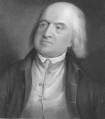
By the early 1700s English common law had grown unwieldy and un- just, with the death penalty attached to some 200 crimes. Jeremy Ben- tham devoted his life to replacing it with utilitarianism, based on “the greatest happiness for the greatest number.” The minority is vulner- able. It conjures images of the modern politician rolling up his sleeves to get the job done. That, of course, is dangerous apart from the Bible
Who was Jeremy Bentham? Jeremy Bentham (1748-1832) was an English economist and philosopher. He fought his whole life for a utilitarian approach to civil government. Bentham was a child prodigy. He graduated early from Oxford in law, but quickly became bored with legal practice. He was the son of a wealthy London lawyer, which freed him from the need to earn a living. And so he devoted his life to study and writing. Bentham took as his life’s mission the daunting task of rewriting English law. But, he grew more and more playful as an adult. Going to bed sick one night at about age 80, he was convinced he would die in his sleep. Finding himself still alive the next morning, he spoke cheerfully to his secretary. “I am yet living and a living dog is better than a dead lion,” he said, “A sorry joke to crack…if you will find me a better that is crackable, I’ll crack it.” This playful spirit was reflected in his delight with the first principle of Utilitarianism. “Priestley was the first (unless it was Beccaria),” he said, “who taught my lips to pronounce this sacred truth – that the greatest happiness of the greatest number is the foundation of morals and legislation”(43).
Historical context. Bentham was radical in his approach to law. Thus, his Fragment on Government (1776) was an attack on the conservatism and alleged contradictions of Blackstone’s Commentaries. Blackstone was the foremost natural law jurist in Britain and the colonies. Bentham had an impact on law in five continents. He also played a formative role in the thinking of John Stuart Mill. Mill took up the utilitarian banner to become the most widely known political writer of the 19th century. Mill was groomed by his father to be the standard-bearer of Bentham’s hedonistic utilitarianism. Instead he adopted an “other-directed utilitarian” approach.
Summary of Bentham’s teaching. Bentham dealt mainly with the utilitarian running of government and less with its theory. The phrase, “the greatest happiness of the greatest number” became a touchstone for government policy. It was popularized and firmly grounded by Bentham. Another way to put it is, whatever works is right. A policy proves its morality by its seeming desired effect. Bentham actually wrote a formula, or “hedonistic calculus.” He used this formula to measure and compare the utility of various courses of action.
Implications for subsequent history. Bentham’s dictum took the place of the Bible at the footing of government power. It paved the way for much harm down the road. A policy of pragmatism cut governments adrift from moorings in Bible law. Most were at least nominally anchored to the Bible prior to the 18th century. Bentham lived at the same time as the American founders of 1787. Thus, their document and debates reflected a utilitarian outlook. Notes and minutes from the Convention reveal that most of the delegates were practical men of affairs. They had no real desire to apply the Bible to their work. They rarely, if ever, brought the Bible into their debates.
Biblical analysis. Utilitarianism is a more refined version of Machiavelli’s principle that the end justifies the means in politics. However, the Bible does not allow a ruler to govern by his own supposed neutral standard of morality. He is not immune from the demands of divine law. This policy permits a corrosive secularism in politics. Under the banner of utilitarianism it is very easy for a ruler to serve his own interests, while claiming to serve his people. The prophet Micah rebukes such rulers, “…. Hear…ye princes of the house of Israel; Is it not for you to know judgment? Who hate the good, and love the evil…who also eat the flesh of my people, and flay their skin from off them….” (Micah 3:1-3). Micah also chastised Israel for keeping the “statutes of Omri” rather than the law of God (Micah 6:16).
Jesus Himself often commanded rulers to ply their trade in accord with Bible law. To soldiers he said, “Do violence to no man, neither accuse any falsely.” To tax collectors, “Exact no more than that which is appointed you” (Luke 3:13, 14). A utilitarian treats such scruples as optional, depending on the perceived public good.
Corrective or Prescriptive Actions: Reject policy that sacrifices justice due an individual for a supposed greater common good or “public policy.” In the words of Martin Luther King, Jr., “injustice done to one is injustice done to all.”